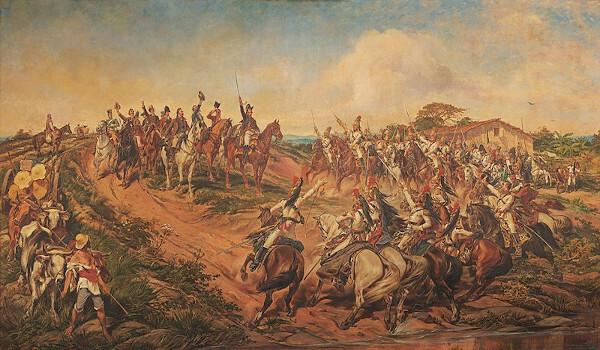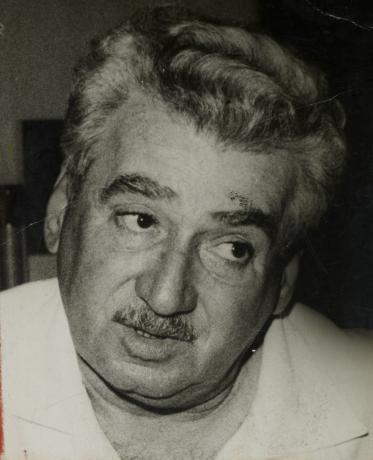THE Language of Naturalism it is impersonal, simple, clear, objective, balanced, harmonious, descriptive, meticulous, colloquial, regionalist and engaged.
Characteristics of Naturalism
Naturalism was one of the literary trends that emerged in the nineteenth century in Europe, which was spreading around the world.
This artistic and cultural movement begins with the publication of the work "The Experimental Novel” (1880) by the French writer Émile Zola.
Alongside Realism, Naturalism denied several aspects of the previous School, Romanticism. This school was characterized by subjectivism, idealization of women, sublime love, the righteous hero, etc.
In Brazil, the naturalist movement is marked by the publication of the novel “the mulatto” (1881) by Aluísio de Azevedo.
In Portugal, it begins with the publication of the work of Eça de Queirós, “The Crime of Father Amaro” (1875).
Although Eça de Queirós is most often cited as a realist writer, his work is very vast and eclectic, encompassing several characteristics of naturalism.
The central idea of Realism and Naturalism was above all to show the veracity of the facts of reality contained in societies and in men. Thus, both movements sought to explore social and political issues.
In Naturalism, however, the characters acquire animal aspects, with the presence of pathological characters, thus highlighting the various urban and social problems.
While in Realism the psychological analysis of the characters is fundamental to present the reality, in Naturalism, the characters are determined according to biological, historical aspects and social. These aspects will determine your actions.
Thus, Realism was more focused on the character and its psychological aspects. Naturalism, on the other hand, focused on social aspects, focused on biology and human pathologies.
Furthermore, the characters portrayed in Naturalism are part of a more decadent and more marginalized social reality. While in Realism, literary works represented the bourgeoisie of the time.
Unlike Realism, which intended to show a trustworthy portrait of society without foundations scientific literature, the naturalist literature brings to light the various discoveries that have developed in the era.
The Positivism of Comte, the Evolutionist ideas of Charles Darwin, in addition to theories associated with Psychology, Philosophy, Sociology and Anthropology deserve to be highlighted.
Thus, naturalist writers intended to demonstrate the scientific theories that developed in the nineteenth century and definitively transform world society.
Read too:
- Naturalism
- Naturalism in Brazil
- Naturalism in Portugal
Main Representatives in Brazil
The main naturalist writers in Brazil were:
- Aluísio de Azevedo (1857-1913)
- Raul Pompeia (1863-1895)
- Adolfo Ferreira Caminha (1867-1897)
Main Representatives in Portugal
The main Portuguese naturalist writers were:
- Francisco Teixeira de Queirós (1848-1919)
- Júlio Lourenço Pinto (1842-1907)
- Abel Botelho (1854-1917)
Examples
To better understand the various aspects of the language of naturalism, below are two examples of naturalistic prose:
Excerpt from the Work "the tenement” by Aluísio de Azevedo
The next day, in fact, around seven in the morning, when the tenement was already boiling during the usual toil, Jerônimo presented himself with his wife, to take care of the little house rented the day before.
The woman was called the Piety of Jesus; she would be thirty years old, of good stature, broad and wiry flesh, strong fawn-brown hair, slightly white teeth but solid and perfect, full face, open face; a whole of silly bonhomie, unbuttoning her eyes and mouth in a friendly expression of simple and natural honesty.
Both came to ride the swallow that carried their trains. She wore a purple serge skirt, a white cotton wool cape, and a red cotton handkerchief on her head; the husband the same clothes as the day before.
And the two of them dismounted, very confused by the objects they had not trusted with the men of the cart; Jeronimo hugging two formidable glass sleeves, the primitive ones, the kind you could comfortably stick a leg in; and Piedade moored with an old clock on the wall and with a large bundle of saints and blessed palms. And so they crossed the inn's courtyard, amid the comments and the curious looks of the former residents, who never saw the new tenants that appeared without a hint of suspicion.
Learn more about the work: the tenement.
Excerpt from the Work "the Baron of washes” by Abel Botelho
The fullness of life, the genital arrogance, the maximum organic evolution, typical of 32 years old, kept the Baron's natural tendencies of virility still strong and dominant. For the time being, he had the same appetites for penetration and possession that a man ordinarily feels with a woman.
However, in rare moments of vertigo, at the contact of his flesh with that other impetuous and fresh virility, a fleeting, effeminate movement would run through his muscles; a pregust of pleasure that was based on passivity, on abandonment, sparked in his mind; it was difficult to assume from his will a foreshortened request not to give himself up, to be possessed, to be feminized, in short.
What was, at one time, a corollary of his temperament, is a pathognomic sign of the end of a useless race, of the agonizing of a family that came to dispose of itself, rotten from the latest aberrations and the latest baseness, in the person of its representative ultimate. It was like the beginning of the formation of an edema of a moral nature, purulent, soft, growing treacherously without pain and without itching, drinking heartily and quickly in the degrading essence of the patient, with a dung bin the mushrooms.
Test your knowledge with Questions about realism and naturalism.


